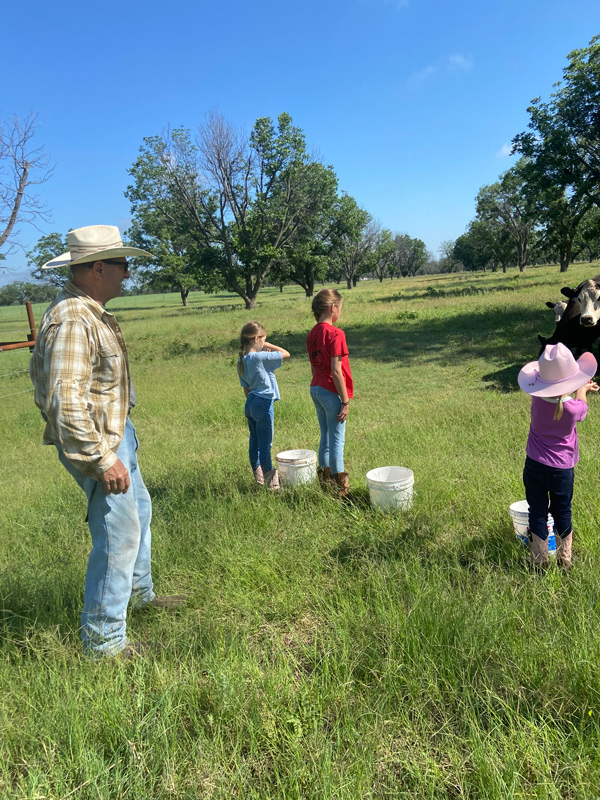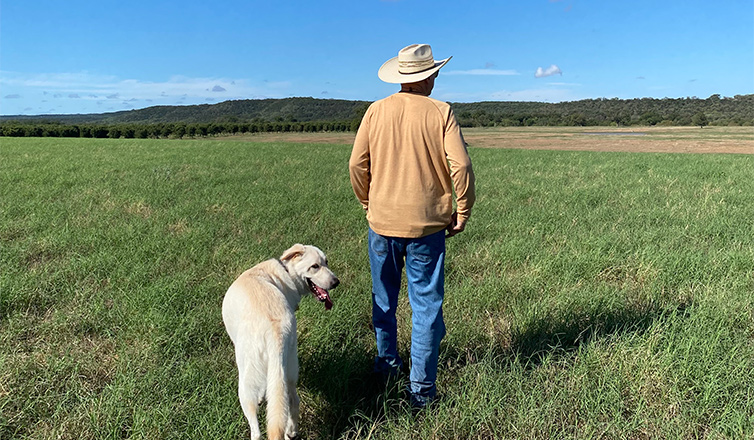Albert Stowell will never forget the day his family gathered around the table for an Easter meal in April 2014. As he was eating and talking with relatives, he began to slur his words. He was not drinking any alcohol and had no other health concerns, so he and his wife immediately knew something was not right. This began their nearly five-year journey to find an answer that ended with a diagnosis of myasthenia gravis, or MG. The chronic autoimmune disease causes the immune system to attack the connection between nerves and muscles, known as the neuromuscular junction (NMJ). This interrupts their communication and causes weakness in muscles responsible for movement and breathing.
During the following five years after that Easter meal, Stowell saw eight neurologists and other specialists before he was diagnosed with MG. Each year, his symptoms got worse. His face drooped and he had trouble swallowing. Sometimes, he even choked until he passed out.
“The fatigue was terrible,” said Stowell. “Often I couldn’t even lift my arms or legs. I remember having to stop and sit on a sidewalk one time and wait for help. My double vision got so bad I had to wear a patch on one eye.”
Stowell tried several medications throughout those years, but nothing seemed to help all of his fatigue symptoms. Some of the medicines caused uncomfortable reactions as well. Desperate for any help they could find, the Stowells went to an MG support group where they met neuromuscular neurologist Dr. Yessar Hussain, who was speaking to the group that evening.
A Clinical Trial Leads to a New FDA Drug Approval
Dr. Hussain told Albert about a clinical research trial he was enrolling MG patients in that could offer hope, and within the first month of taking the research drug, Stowell felt much more like himself again. After three months on the drug, he stopped taking all of his other medications and felt safe getting back to work on his farm.
“I didn’t expect to feel such a difference so quickly,” said Stowell. “I had not been able to drive my tractor or get in and out of my mower for years. I had always been active, moving cows and working in the hay fields. Now at 74 years of age, I can do all of that again for the first time in years.”
Stowell was one of 10 patients enrolled in the clinical research trial at Austin Neuromuscular Center’s research department, the National Neuromuscular Research Institute, for three years. They all took the medication daily by injection.
“In this clinical trial, the drug zilucoplan was only given to MG patients who were anti-acetylcholine receptor (AChR) antibody-positive,” said neuromuscular neurologist and investigator Dr. Yessar Hussain. “They all had to take the meningitis vaccine and be up to date with other routine vaccines. All of our patients in the trial saw an improvement in their daily functioning, such as muscle weakness, breathing, and swallowing food. It made a big impact on their overall quality of life.”
The Food and Drug Administration approved the use of zilucoplan for generalized myasthenia gravis (gMG) adult patients in October 2023. Stowell is so thankful to have been a part of the research that led to the drug’s approval and grateful other MG patients will now have access to it.
“It’s great that others may get their lives back like I have. When my five grandchildren were younger, I had trouble holding them because of my myasthenia gravis. Now, my wife and I can take them to our farm on the weekends, and they enjoy feeding cows and riding on the tractor with us.”


We are currently enrolling patients in clinical trials for MG and other neuromuscular diseases at our research department, the National Neuromuscular Research Institute. Learn more about our clinical trials here or call us at (512) 920-0140. And follow us on Facebook, LinkedIn, Twitter, and Instagram for important updates.
